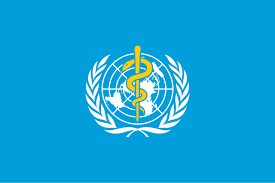
WHO and World Bank Highlight Resilience and Future of Ukraine’s Health System Amid War
Amid the dual crises of the COVID-19 pandemic and an ongoing war, Ukraine's health system has demonstrated remarkable resilience, supported by transformative health financing reforms. A new joint report, Health Financing in Ukraine: Reform, Resilience and Recovery, unveiled by the World Health Organization (WHO) and the World Bank on November 20 in Kyiv, sheds light on these advancements. The report offers a roadmap for policymakers to enhance equitable access to care, sustain essential services, and prepare for future health emergencies, even as the country faces unprecedented challenges.
A central focus of the report is Ukraine’s transition from an employment-linked health contribution system to one based on general government revenues. This fundamental reform ensures universal health coverage for citizens and permanent residents, maintaining continuity of care despite disruptions caused by economic instability and mass displacement. The centralized management of health funds by the National Health Service of Ukraine (NHSU) has been instrumental in sustaining services in war-affected areas, particularly through the Program of Medical Guarantees.
Dr. Jarno Habicht, WHO Representative in Ukraine, described the report as a vital tool for guiding health financing reforms, emphasizing its role in strengthening Ukraine’s health system and its ability to adapt to evolving needs during the war.
The report underscores that a robust health system is critical not only for addressing immediate health crises but also for fostering national recovery. With the war significantly impacting population health and demographics, safeguarding public health investments is vital for long-term economic and social stability. However, fiscal constraints, compounded by the need for defense and security spending, require that health financing reforms focus on maximizing efficiency without compromising access to care.
Bob Saum, World Bank Regional Country Director for Eastern Europe, commended Ukraine’s commitment to these reforms, highlighting the importance of improving the efficiency of public health financing to address growing demands and modernize the system.
Ukraine’s Minister of Health, Dr. Viktor Liashko, emphasized the dual challenge of addressing the priorities of peacetime while adapting to the realities of war. He highlighted the formation of a capable network of health-care facilities and increased health spending for 2025, with over 217 billion hryvnia allocated for health care, including 175.5 billion hryvnia for the Program of Medical Guarantees. These measures aim to enhance access to affordable and quality care.
The report identifies primary health care as a cornerstone for building resilience within the health system. It stresses the need for adequate funding to ensure the continuity of essential services, particularly in conflict-affected regions. Strengthening governance and transparency is also pivotal in maintaining public trust and optimizing the health financing system.
Drawing lessons from the pandemic and the ongoing war, the report calls for modernizing hospital networks, optimizing service delivery, and reinforcing institutional governance. Regional consultations in Odesa, Dnipro, and Kyiv, involving policymakers, health-care providers, and facility owners, have contributed to shaping these recommendations.
As Ukraine rebuilds, the resilience of its health system will play a critical role in its recovery. The WHO–World Bank report provides a comprehensive strategy for navigating this challenging path, offering solutions to ensure sustainable, efficient, and equitable health care for all citizens. It reaffirms the importance of coordinated efforts in supporting Ukraine’s journey toward stability and prosperity.